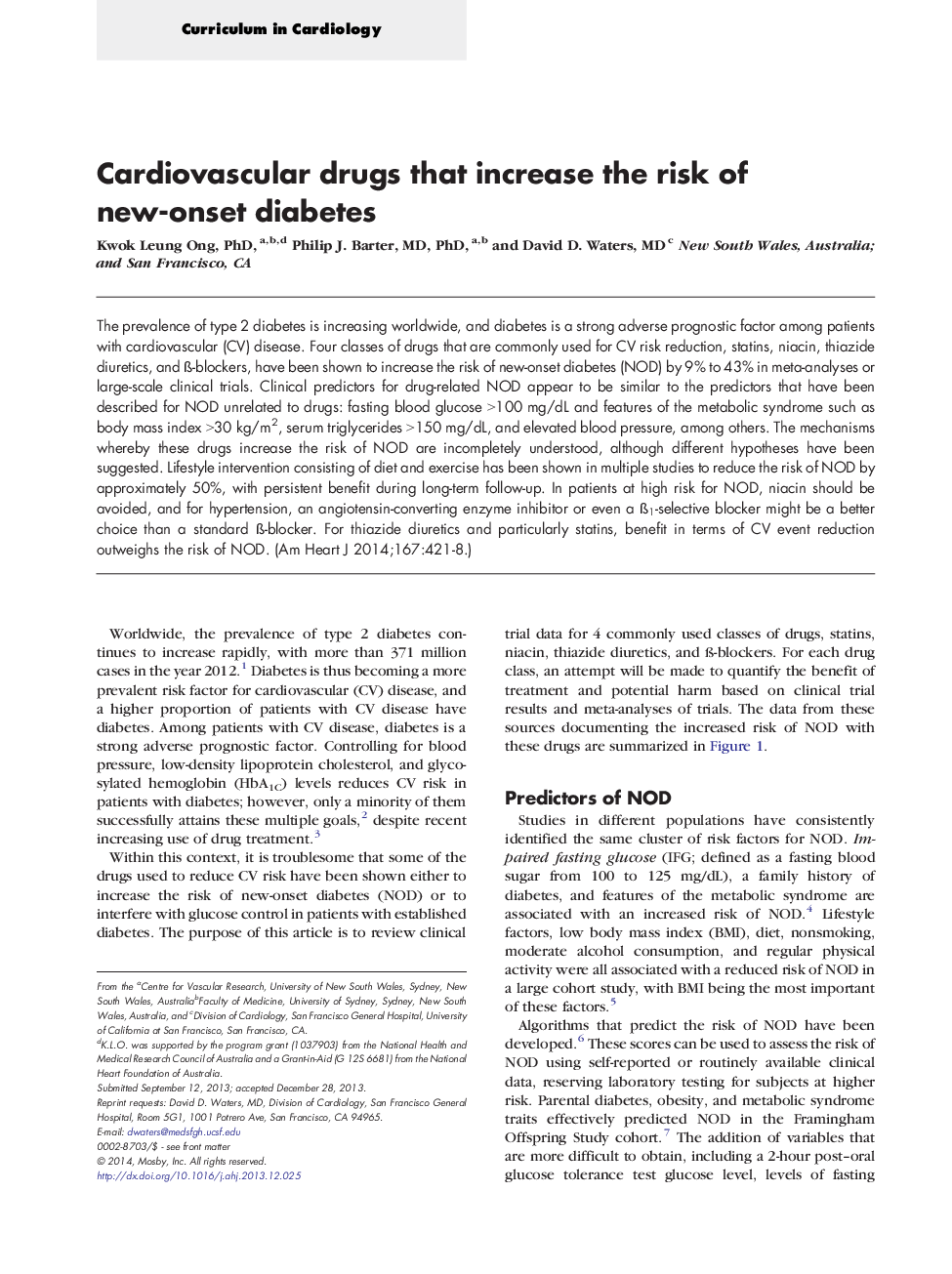| کد مقاله | کد نشریه | سال انتشار | مقاله انگلیسی | نسخه تمام متن |
|---|---|---|---|---|
| 5928546 | 1167786 | 2014 | 8 صفحه PDF | دانلود رایگان |
The prevalence of type 2 diabetes is increasing worldwide, and diabetes is a strong adverse prognostic factor among patients with cardiovascular (CV) disease. Four classes of drugs that are commonly used for CV risk reduction, statins, niacin, thiazide diuretics, and Ã-blockers, have been shown to increase the risk of new-onset diabetes (NOD) by 9% to 43% in meta-analyses or large-scale clinical trials. Clinical predictors for drug-related NOD appear to be similar to the predictors that have been described for NOD unrelated to drugs: fasting blood glucose >100 mg/dL and features of the metabolic syndrome such as body mass index >30 kg/m2, serum triglycerides >150 mg/dL, and elevated blood pressure, among others. The mechanisms whereby these drugs increase the risk of NOD are incompletely understood, although different hypotheses have been suggested. Lifestyle intervention consisting of diet and exercise has been shown in multiple studies to reduce the risk of NOD by approximately 50%, with persistent benefit during long-term follow-up. In patients at high risk for NOD, niacin should be avoided, and for hypertension, an angiotensin-converting enzyme inhibitor or even a Ã1-selective blocker might be a better choice than a standard Ã-blocker. For thiazide diuretics and particularly statins, benefit in terms of CV event reduction outweighs the risk of NOD.
Journal: American Heart Journal - Volume 167, Issue 4, April 2014, Pages 421-428
